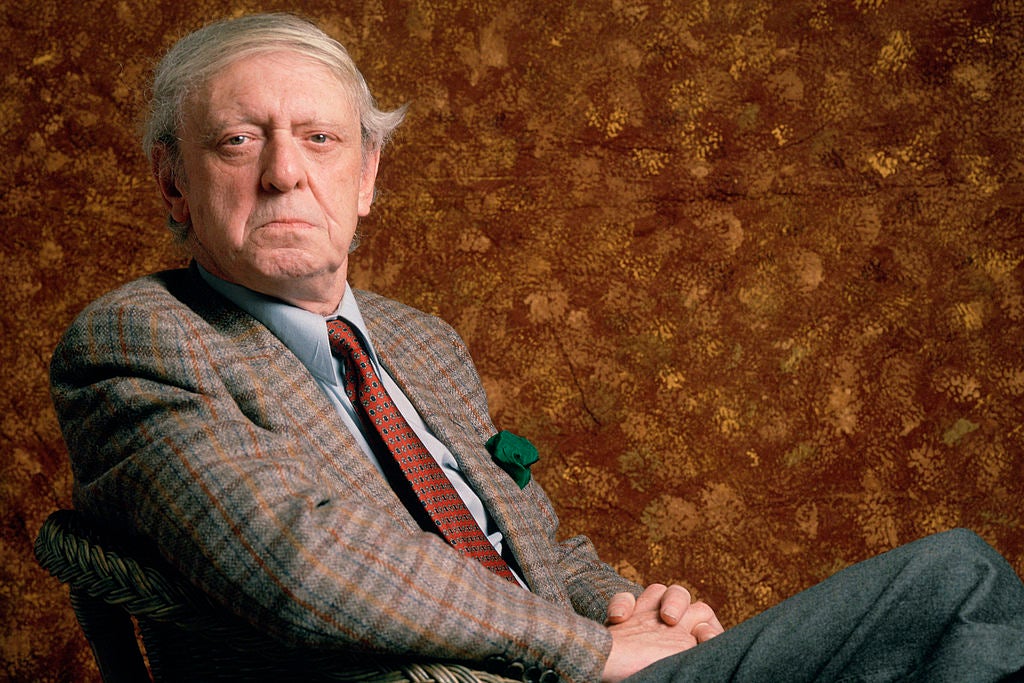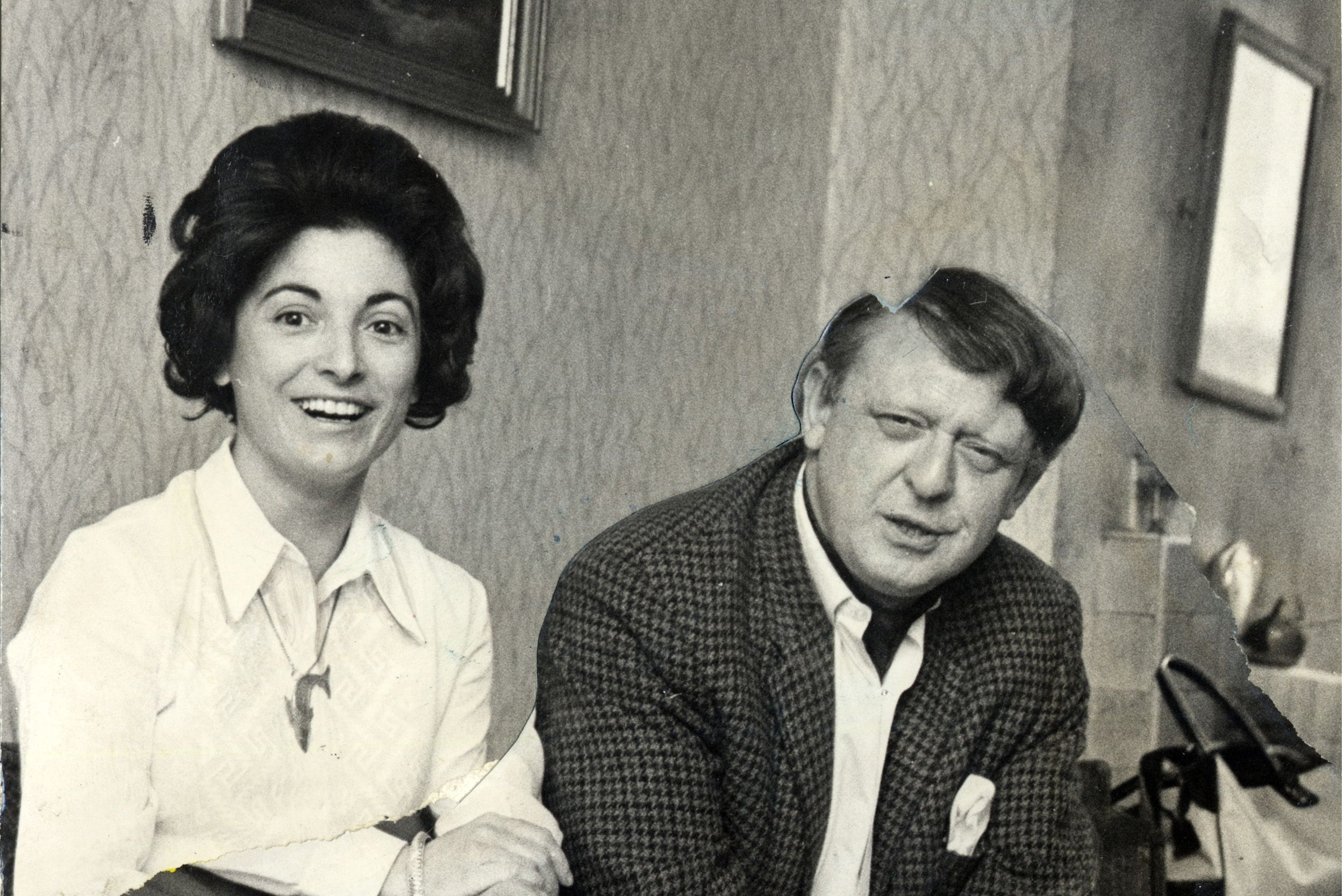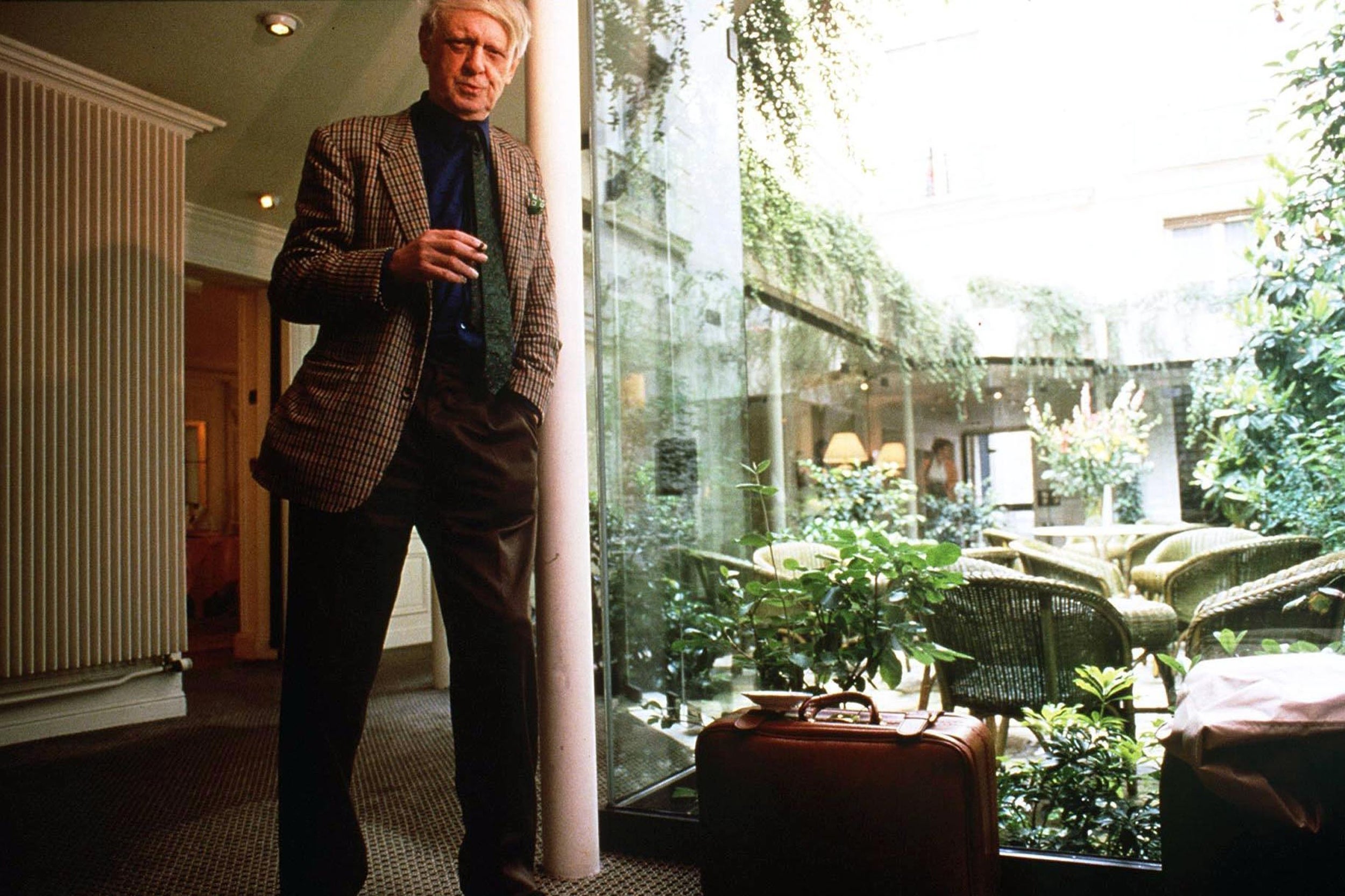Like clockwork: An unfinished Anthony Burgess script is about to be published
David Barnett meets the man crowdfunding to adapt Anthony Burgess’s never-realised script 'The Black Prince' into a novel, almost a quarter of a century after the author died

When asked by interviewer John Cullinan for a piece in the Paris Review in 1972 why he saw the avant-garde writer James Joyce as something of a role model, the English author Anthony Burgess commented that “all novels are experimental”.
Burgess died in 1993, but with that thought in mind he would surely applaud the fact that a previously unseen work of his is shortly to come to the fore.
Not that The Black Prince is some lost, unpublished novel found languishing, as seems to happen so often these days, in a trunk in some dusty attic. Nor is it a novel Burgess had previously suppressed for some reason, or decided not to publish.
No, what would surely tickle the author of A Clockwork Orange and Earthly Powers, among his 30-odd novels, is that he never actually wrote The Black Prince at all, though he did take the ideas and turn them into a screenplay… which was never filmed.
It’s a conundrum that only author Adam Roberts has the answer to as, in the spirit of Burgess’s assertion that all novelists are experimenters, he’s taking the raw material that the writer left behind and attempting to turn it into the Anthony Burgess novel that never was.
Roberts, 52, is a lecturer in English literature and creative writing at Royal Holloway, University of London, and no mean producer of books himself; his 16th novel for Gollancz, The Real-Town Murders, was published last week.
He has been a fan of Anthony Burgess for as long as he can remember. “As a teen I read various books of his, and you have to bear in mind that in the late 70s and early 80s he was everywhere: so for example he was the most frequently re-booked guest on the BBC’s Parkinson, his reviews were in the Sunday papers, when Earthly Powers lost out – a total injustice, it must be said – to Golding’s Rites of Passage in the 1980 Booker it was reported on all the news channels. I knew even back then that I was always going to be Team Burgess rather than Team Golding.”

While poring over an interview with Burgess in the Paris Review from 1972 – conducted by John Cullinan, whom Burgess gave the “experimental” quote to — Roberts saw the first mention of The Black Prince. Burgess told Cullinan he wanted to write a historical novel using the techniques employed by the Great American man of letters John Dos Passos, whose experimental toolkit included incorporating snatches of newspaper reports, autobiographical details, and fictional realism. Burgess said: “The novel I have in mind, and for which I’ve done a 90-page plan, is about the Black Prince. I thought it might be amusing blatantly to steal the Camera Eye and the Newsreel devices from Dos Passos just to see how they might work, especially with the Black Death and Crécy and the Spanish campaign. The effect might be of the fourteenth century going on in another galaxy where language and literature had somehow got themselves into the twentieth century. The technique might make the historical characters look remote and rather comic – which is what I want.”
It immediately caught Roberts’ eye. “I was immediately intrigued – such an audacious conceit! In the interview he says he had about 80 pages or so written. I became very curious to see what that material looked like.”
But curiosity gradually turned into something else for Roberts. What if, he thought, Burgess had actually completed the novel. But he knew he hadn’t done so. Then... what if someone else completed it? What if that person was Adam Roberts?
“My initial thought was that if Burgess had managed to pull together a substantial-enough portion of the novel, it might be possible just to cap it off at the end and so bring a ‘new’ Burgess novel into the light,” he says. “That seemed to me a pretty exciting proposition.”
He got in touch with Andrew Biswell, the world’s premier Burgess scholar who heads up the Burgess Institute, situated in the writer’s hometown of Manchester. There was good news and bad news.
“He told me that Burgess had written an entire screenplay based on this material, which was never filmed, but had left no prose relicts or notes or anything. So at that point the prospect shifted about: I would have to write the whole novel, in accordance to Burgess’s initial brief and using as much of the screenplay as possible. I wasn’t sure about that, but Andrew sent me a copy of the screenplay and reading through it the idea rooted deeper and deeper in my imagination. So I ended up doing it.”
Roberts is primarily a science fiction novelist. His works are thoughtful, intelligent and sometimes odd; he fills his books with often challenging concepts and ideas. By Light Alone is about a future where people are genetically engineered so their hair absorbs nutrients from the sun, doing away with the need for hair. In Yellow Blue Tibia, Stalin gathers a group of Russian science fiction authors together in the wake of the second world war to devise a hypothetical alien invasion scenario... which might, or might not, come to pass. In Bete, animals can talk. But we still eat them. His latest, The Real-Town Murders, is set in a near-future where everyone is connected to The Shine, and a body turns up in the boot of a car fresh from an automated production line... an idea first mooted by none other than Alfred Hitchcock.
So Roberts is no stranger to pushing the envelope. Still... any qualms about writing what will have a joint byline with himself and Anthony Burgess? “Qualms is a good word, isn’t it?,” he says enthusiastically. “Burgess, who loved words and their histories, would have been intrigued by it, I think. The etymologists don’t know whence it comes. It might, they say, derive from the Old English cwealm, which means ‘death, disaster, sickness’; or perhaps it might be related to the German qualm, which means ‘smoke, fumes’.”
Answer the question, Mr Roberts.
“The short answer is: yes. He’s a major British novelist, and I was trying to do him justice, stay true to his style and ethos, to play fair by him,” says Roberts. “It’s quite a big ask. The technical challenge was quite specific really: I needed to write a prose that captured the flavour of Burgess capturing the flavour of Dos Passos, which meant smoking the kippers of my chapters, as it were, in the smoke of real Burgess: hence my reading his entire backlist. But there was a real danger the whole would be a disaster, a sort of death. I hope that’s not how it’s turned out, obviously.”

So is this an Adam Roberts novel or an Anthony Burgess novel, at the end of the day?
“It is an Adam Roberts novel, but one based on a Burgess idea, incorporating as much actual Burgess as I could, and one that is as true to Anthony Burgess as I could possibly make it. I hope that doesn’t read as me being evasive ... I really did live and breathe Burgess for the whole period of my writing this, and I hope very much that has come through in the finished result.”
As to when we will see the finished result... well, in a way, we’re back, full circle, to the idea that all novels are experimental. Not just the writing of them, which The Black Prince certainly is, but in the publishing of them as well.
The Black Prince will be published via the relatively new kid on Grub Street, Unbound. The publisher has a progressive business model that is based on crowd-funding. Projects are posted on the Unbound website and there have to be a set level of pledges from interested parties before the book goes into production. Unlike, say, Kickstarter, there’s no month-long race to the finish line or the project is scrapped; Unbound crowdfunders are more civilised and leisurely. The Black Prince is, at time of writing, 54 per cent funded; more than halfway to it becoming a real book, not just with copies reserved for those pledging, but in full production for anyone to buy a copy.
“Publishing as a whole is going through a challenging time: the rise of e-books, and the proliferation of self-pub and other modes of publication, has thrown the old business model somewhat into disarray,” says Roberts. “Speaking as an author, I still value all the things a proper publisher can add to what I do, and as a reader I still trust proper publishers as gatekeepers. I’m very happy at Gollancz; Real-Town is my 16th novel with them. But Unbound are a proper publisher too, albeit one with a different business model: soliciting pledges before publication to cover the costs of actually editing and publishing the book.”
And, of course, there’s nothing new under the sun. Unbound is heralded as the new way forward for publishing, but it has its roots in how we used to do things.
“In some ways its a reversion to a much older model: the 18th and early 19th century model for publishing a book was to attract a list of subscribers, or patrons, who would put the money down to make the book happen,” says Roberts. “Conceivably there will be a shift back to that model. It’ll be interesting to see in the longer term how far this becomes the new paradigm of publishing.”
The Black Prince, by Anthony Burgess and Adam Roberts, will be published by Unbound if the crowd-funding target is met. To pledge go to: unbound.com/books/the-black-prince
Join our commenting forum
Join thought-provoking conversations, follow other Independent readers and see their replies
Comments
Bookmark popover
Removed from bookmarks